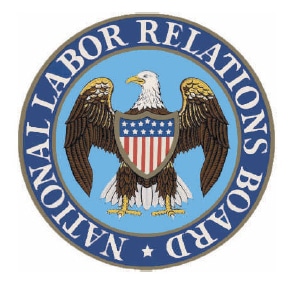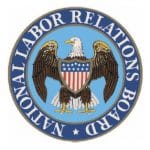
According to Politico, The National Labor Relations Board’s (NLRB) newest focus might be on limiting the right-to-work movement’s pitch of required representation of non-union workers. In a call for briefs yesterday, the agency said it may allow a union to collect a fee from a non-member in a right-to-work state if that member is not a dues paying member. Under current NLRB rules and regulations, unions are prohibited from collecting any fees from non-members in right-to-work states, regardless of whether those members actually use that union’s resources in a conflict with their employer. That’s what the 1947 Taft-Hartley Act, which created and regulates the circulation of right-to-work laws in the U.S., has always been understood to mean.
Legal analysts say the NL RB should deem it legal for unions to collect fees from non-members using grievance procedures even in right-to-work states. In a blog post last night, Harvard Law Professor Ben Sachs wrote: “There is no seeming rationale for this inequity, and nothing in the federal labor law nor in state right-to-work laws requires it. If unions are prohibited from collecting fair share fees, they should at a minimum be permitted to charge workers for the costs of individual grievance representation.”
RB should deem it legal for unions to collect fees from non-members using grievance procedures even in right-to-work states. In a blog post last night, Harvard Law Professor Ben Sachs wrote: “There is no seeming rationale for this inequity, and nothing in the federal labor law nor in state right-to-work laws requires it. If unions are prohibited from collecting fair share fees, they should at a minimum be permitted to charge workers for the costs of individual grievance representation.”
Anti-labor groups believe the board will make the change. “When this board is asking for an amicus brief on the reconsideration of a rule, the majority’s already decided that it wants to change the rule,” said Michael Lotito, a management-side attorney at Littler Mendelson. “This is a signal from this board that [says]: ‘we’re going to push back against the expansion of these right-to-work actions.’
Currently, labor unions are the only institutions in the United States that are required to represent non-contributing members. Anti-Labor groups have used this to mislead non-union workers with the promise of free representation without the requirement of paying dues.
Related News
- Local 9 Car Show – Car Registration
- Public Comment of SMART-TD Regarding Tesla’s Special Permit Request for Transporting Lithium Batteries by Rail
- Colorado Transit Worker Safety Bill (House Bill 25-1290)
- Assembly, No. 1672
- SMART-TD’s Public Comment Opposing CSX’s “Zero-to-Zero” Push
- Local 435, North Florida Building Trades win big on Jacksonville Jaguars stadium
- SMART Mobile App Flyer
- House Docket, No. 2682
- FRA Waivers for Autonomous Rail Testing
- Riders resist driverless technologies in Chicagoland